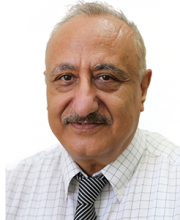You are here
How ought philosophy be taught?
Jan 14,2018 - Last updated at Apr 03,2024
Currently, there is an ongoing heated debate in Jordan at the official educational level over teaching philosophy after it had been suspended decades ago due to political and ideological considerations. It would be difficult to answer this question without referring to the historical experiences of successful nations in this field. Therefore, I start with the experience of the United Nations Educational, Scientific and Cultural Organisation (UNESCO) in preparing the Philosophy Manual: a South-South Perspective, which can be downloaded at: http://unesdoc.unesco.org/images/0022/002284/228411E.pdf. The manual is meant as a philosophical outlook from the perspective of the peoples of the South towards their own philosophy without cognitive biases or hegemony. It was published in 2014 on the occasion of the World Philosophy Day, which is celebrated in November of each year.
To mark this occasion, the Arab Thought Forum organised an evening of dialogue on 12/11/2017 over the introduction of philosophy teaching in the national educational curricula. Pursuant to the deliberations that took place, it would be useful to highlight some experiences, including integrating that of UNESCO with the International Baccalaureate curriculum as a proposition for a practical outcome in Jordan and the underdeveloped world at large.
UNESCO’s method of teaching philosophy in the manual presents examples of the works of traditional philosophers on a global scale, such as Ibn Rushd, of the 12th century, or Arab contemporary thinkers, such as RifaaTahtawi of the 19th century, placing them in a historic context as “the product of their age and time”. Next it presents a philosophical text and the objective conditions that led to its writing, within the framework of specific philosophical problems (gender equality in the case of Tahtawi), then discussions over the text follows, finally proposing thought-provoking questions about the text.
This is the method of UNESCO’s philosophy manual; but is it suitable for teaching in our country?
Undoubtedly, we need a consensus of experts to assess this method’s prospects of success. But we believe that the International Baccalaureate (IB) method may be worth investigating too as it is based on presenting philosophical problems rather than teaching the history of philosophy. Perhaps we stand here in opposition to teaching history of philosophy in the method of “Sophie’s World” by Jostein Gaarder which mentions no Arab or Muslim philosophy. As academic advisor to the baccalaureate curriculum in Jordan, I recommended including this book, for 10th graders for a number of years; but it transpired that students memorised events instead of interacting with concepts and problematic knowledge issues. We also introduced the study of logic, but we did not notice any effect or change on the logic in students’ thinking.
So, is UNESCO’s choice in teaching philosophy the more appropriate option?
Without doubt, it is a reasonable choice. But the experiment of the International Baccalaureate is based on a different experience that can be integrated with the UNESCO exercise as it is a methodology worthy of consideration. First, IB has a subject called “theory of knowledge” whose aim is to teach students about the tools of knowledge (ways of knowledge) which they possess, namely the mind, senses, imagination, language, emotion, feeling, belief, memory…etc. It also acquaints students with the subjects or areas of knowledge such as natural sciences, social sciences, mathematics, history, religion, the arts, and so on. Then, they are taught to exercise their ways of knowledge to investigate problematic issues within different areas of knowledge. Finally, students are asked to submit research in 1,600 words following strict methodological rules for the purpose of answering one of six questions on new prescribed tiles improvised annually over at least two areas of knowledge.
This remarkable research experience prepares students for the university because learning how to write research and knowing its methodological rules is a necessary skill for university students. In my experience teaching at many universities, I have only rarely come across undergraduate research that matches the level of the Baccalaureate.
From another perspective, the International Baccalaureate introduces philosophical questions in each of the basic subjects of knowledge, such as physics, biology, history, languages, etc, which are posed at the end of each chapter to provoke thought. For example, the following questions are asked in each of the subjects below, as such:
History
Is there a single reading of history, and why?
How can we verify a specific historical fact?
Languages
Do the meanings of words evolve, and why? And what impact does this have on understanding their meaning in history and religion?
What are the structural similarities between different languages of the world?
Physics
What is the role of imagination in scientific discovery?
How does prediction differ in natural sciences from social sciences, and why?
Mathematics
Were the laws of mathematics discovered or invented?
To what extent does mathematics reflect reality?
It is of extreme importance that students conceive the concepts of change in meaning and the possibility of myriad interpretations in all fields of knowledge, otherwise there would be a high probability to fall into Wittgenstein’s “language games” rather than tackle the problematic philosophical questions objectively.
Thus, philosophy and critical thinking are necessary to understand all subjects and disicipline of knowledge. Through this practice philosophy descends from its ivory tower to deal with contemporary basic human problems such as cognitive relativism and thus opens the way to inter-cultural dialogue.
Finally, we propose that critical thinking be introduced in all subjects of the curriculum, along with the “philosophy manual” in order to stimulate the mind to question all existing norms and “final truths”. This practice is in itself an important philosophical act that develops the mind to realise the limits of knowledge and the relativity of truth and hence to prepare the mind to accept the other no matter how different. However, teaching philosophy successfully must ensure that students possess good language capabilities, their teachers are qualified and their schools are properly equipped with teaching aids.












